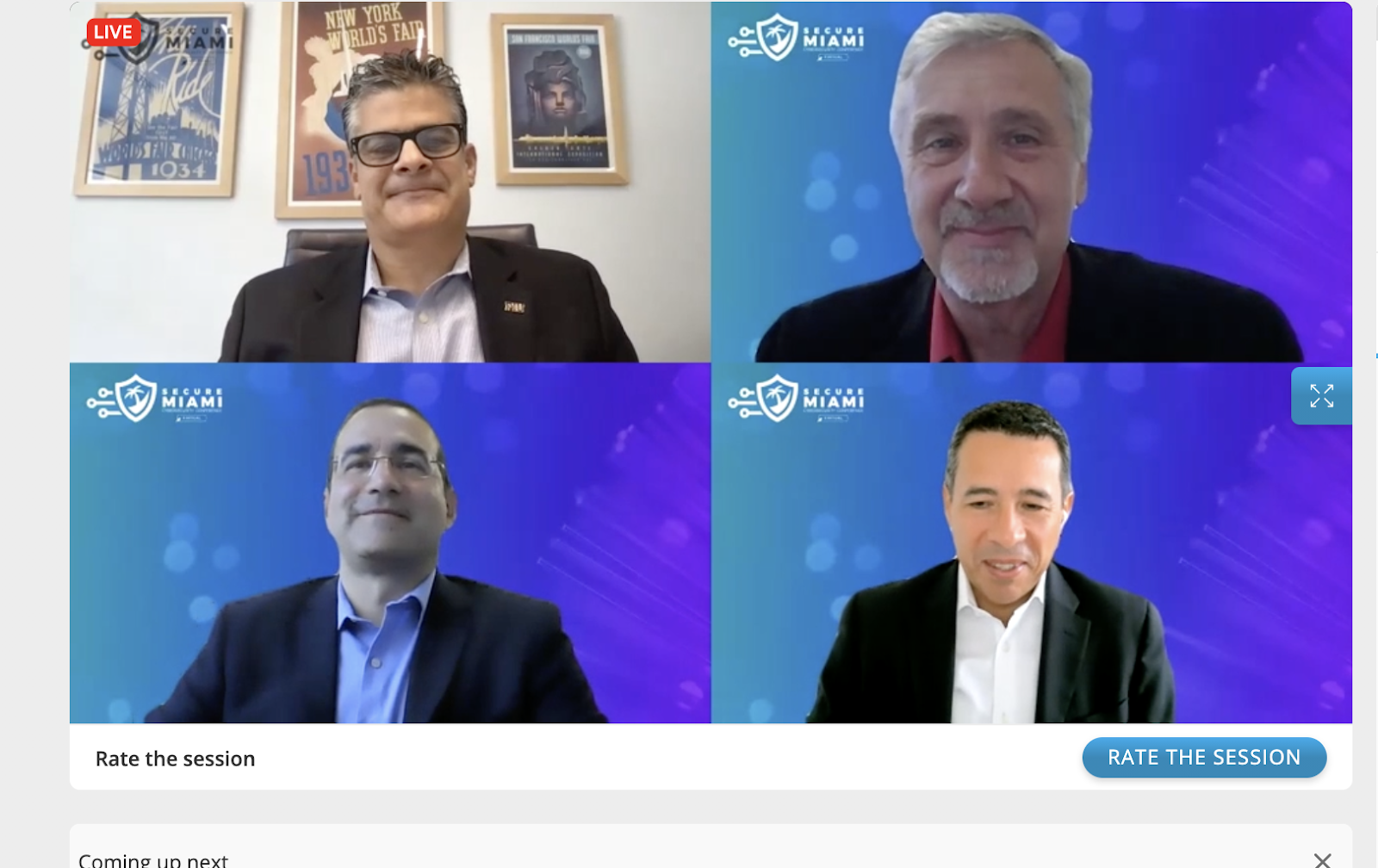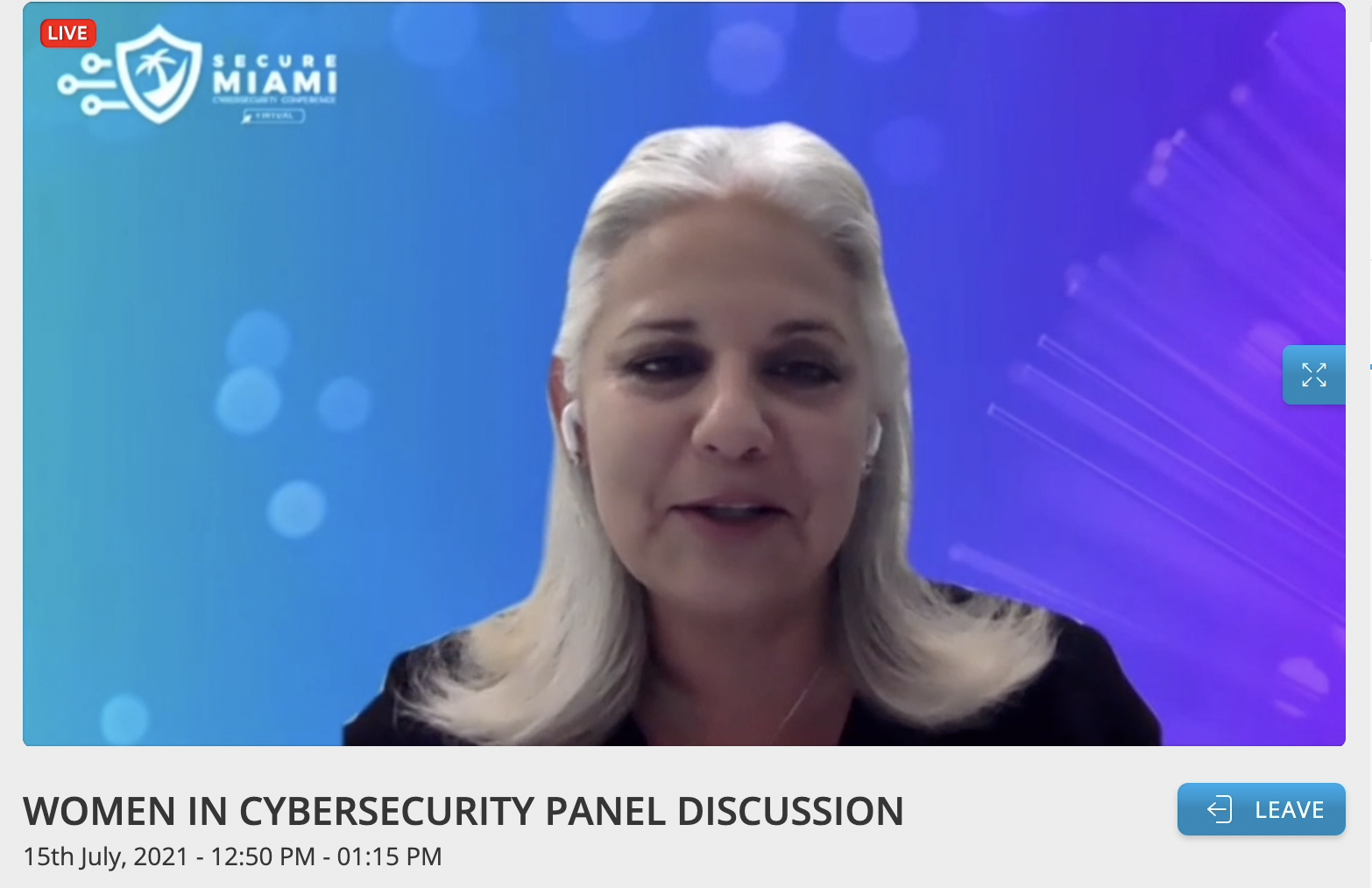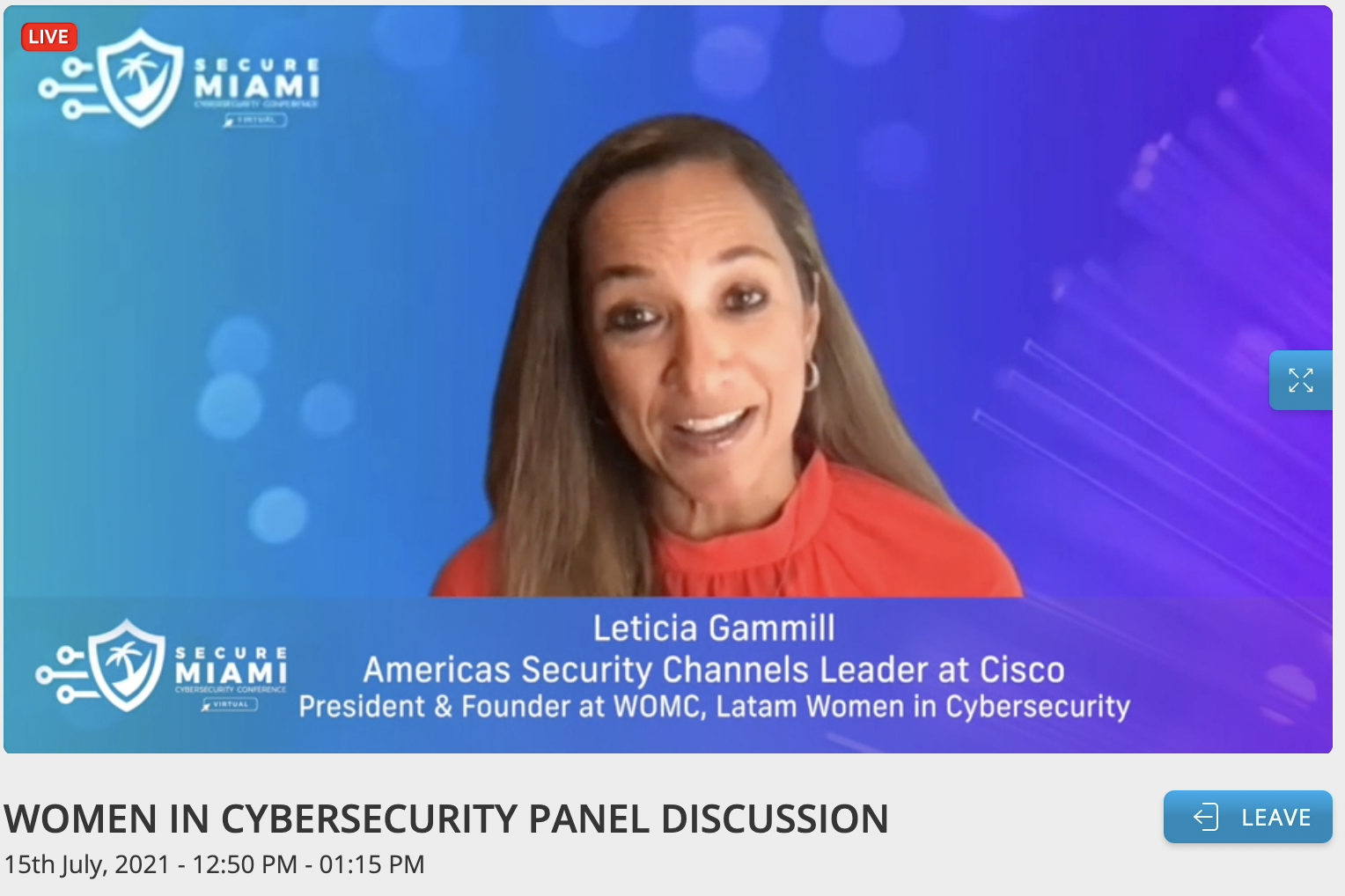Blog, Breaches, Trusted Security Advisor, Digitalera, Partner News, Ransomware Detection, All, cybersecurity, ITsupport, securityawareness, MFA, multifactor, passwords, ransomwareprotection, ransomware
FIU and DigitalEra Group Hosts Fifth Annual Secure Miami Conference
FIU and DigitalEra Group Hosts Fifth Annual Secure Miami Conference
.png?width=1800&name=Secure%20Miami%202021%20for%20mockups%20(2).png)
By: Samantha Soria / Guest Blogger
Cybersecurity is one of the many issues that the Biden administration is tackling and they are expanding their efforts to end ransomware campaigns and those who create them.
FIU and DigitalEra Group, a tech-based company virtually hosted their fifth annual Security Miami Conference on July 15. Secure Miami brings the cybersecurity community together to address the latest security threats and strategies all in a networking forum.
The conference was broken down into a series of 12 discussions including panels; if cybersecurity is a journey or a destination and women in cybersecurity.

Robert Grillo, Lars Schmekel, Mauricio Angee, and William Mendez for their panel ‘Is Cybersecurity a Journey or a Destination?
Robert Grillo, vice president and chief information officer for FIU’s Information Technology moderated the panel discussion on “if cybersecurity is a journey or a destination.”
“We regularly communicate not only with our governing board but with our department directors and all employees,” said Lars Schmekel, chief information security officer for Miami Dade county. “We need to make them aware of what’s going on out there and frequently they ask us questions about how prepared we are and what we can do to better protect ourselves.”
Other panelists included Dr. Mauricio Angee, chief information security officer for university of Miami health system and William Mendez, chief information security officer for city of Miami; who also shared the types of services that are provided within their local communities.
Angee discussed the services used in the healthcare industry. He recalled the first cyberattack on a healthcare organization at Presbyterian Medical Center in 2016 which left the hospital’s network offline for about 10 days.
Security officer Mendez said public safety is a top priority and communication on matters of security has improved in recent years.
“Over the years, it has gotten a lot better to communicate with matters of security and the exposure that the degree by which media provides information has changed the landscape and how people see information security,” said Mendez.
Panel: Women in Cybersecurity
Joelle Dvir, cybersecurity and data privacy attorney for McDonald Hopkins law firm, moderated a panel discussion on women in cybersecurity.
The panelists included Leticia Gammill, president and founder of WOMCY, Latam Women in Cybersecurity and Americas security channels leader at Cisco, and Helvetiella Longoria, chief information security officer at FIU.
Longoria said her interest in IT led her to the cybersecurity field, and her work in the field began when FIU got their first resource planning software system.

Helvetiella Longoria, chief information security officer at FIU during panel discussion ‘Women in Cybersecurity’
“About 20 years ago, [FIU] got our first ERP system and the first set of firewalls ventured into the network, and nobody really wanted to do anything with them,” said Longoria. “I was always in charge of infrastructure servers…so I was like, ‘I’ll take them on.’”
Gammill said she started working in software about 15 years ago and her first experience happened to be with a cybersecurity company.
“I like to say that talking about cybersecurity is like learning a new language. I love to be able to always study because [this is] a profession [where] you have to constantly update yourself,” said Gammill.
Gammill and Longoria both shared the importance of young girls becoming interested in STEM and cybersecurity.
For Longoria, having young girls becoming exposed to cybersecurity stems from mentorship. She referenced Girls Who Code, an organization whose mission is to “close the gender gap in technology and change the image of what a programmer looks like and does.”

Leticia Gammill, president and founder of WOMCY, Latam Women in Cybersecurity and Americas security channels leader at Cisco during panel discussion ‘Women in Cybersecurity’
“It’s important for us to do outreach and work with both middle schools and high schools to provide either an after-school club or to work with the Girls Who Code clubs because that is an eye-opener,” said Longoria.
Longoria said that when young girls see a woman standing in front of them in a leadership position in cybersecurity, they will be eager to learn more.
Gammill emphasized the need for cybersecurity role models for young girls.
“Providing opportunities and going to the schools [is] how we make a difference and start changing the mentality to get cybersecurity into a path for more young professionals who are graduating,” said Gammill.
Afternoon Session: Closing Remarks
Grillo closed the conference acknowledging FIU’s efforts to keep its community cyber safe.
“Over the years, we’ve done things across the enterprise and have made sure that everybody’s endpoints is fully encrypted,” said Grillo.
Grillo referred to FIU’s implementation of a two-factor authentication system to ensure that cybersecurity is prevalent for the entire university community and underscored the importance of cybersecurity in our modern age.
“We have so many folks that are doing research and are actually also doing things on the academic side so sharing information is part of our DNA,” said Grillo. “So, when you’re trying to build a security strategy, you’re trying to figure out how you can still operate but also keep the institution secure.”
About DigitalEra
DigitalEra is a leading solution provider of network and cybersecurity products and services, serving major business, education and governmental agencies throughout the US. In addition to access to the most sophisticated and effective security products, DigitalEra provides expert guidance on use as well as ongoing security counsel and insights that help their clients prevent security breaches and mitigate threats. For more information, visit:www.digitaleragroup.com.
